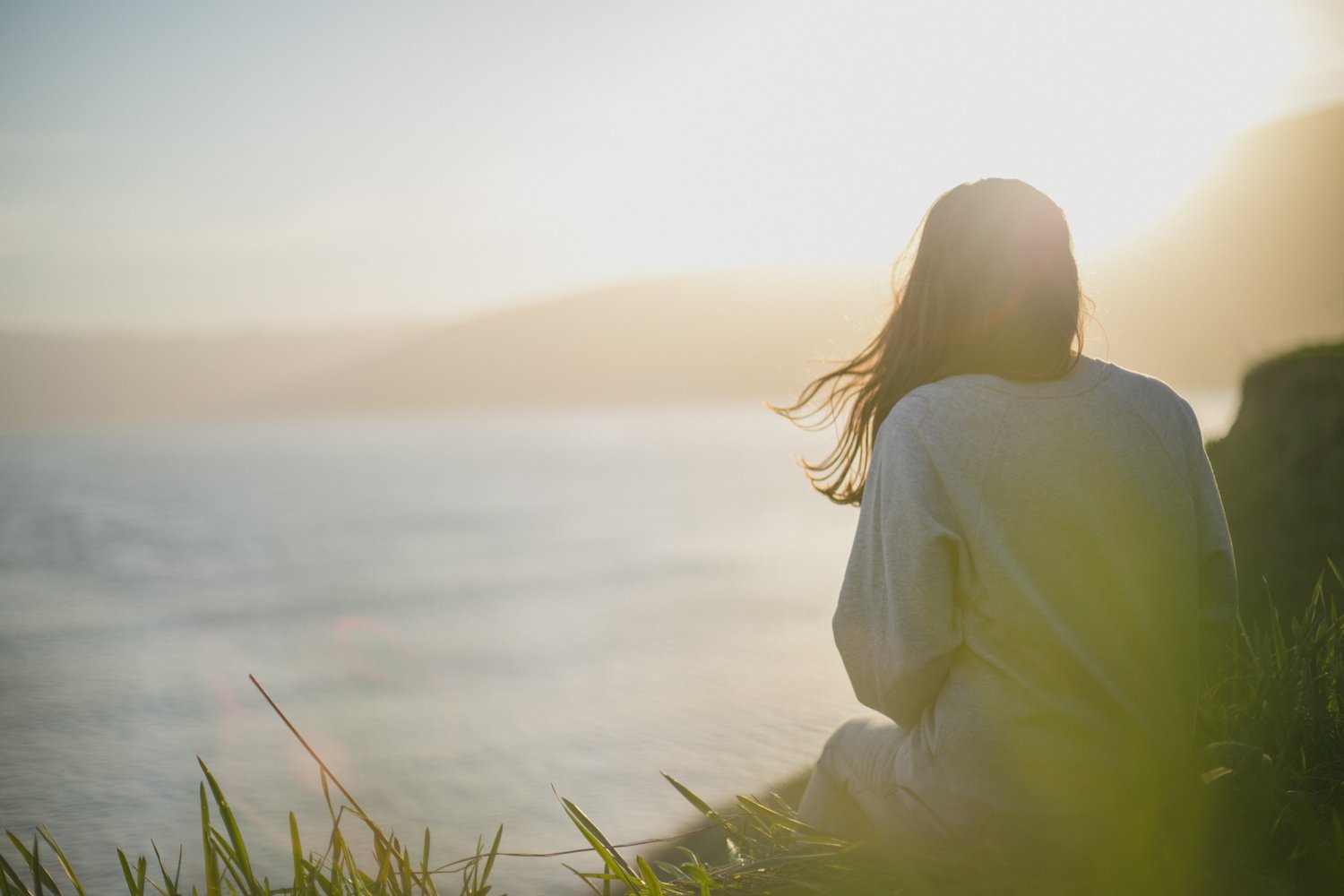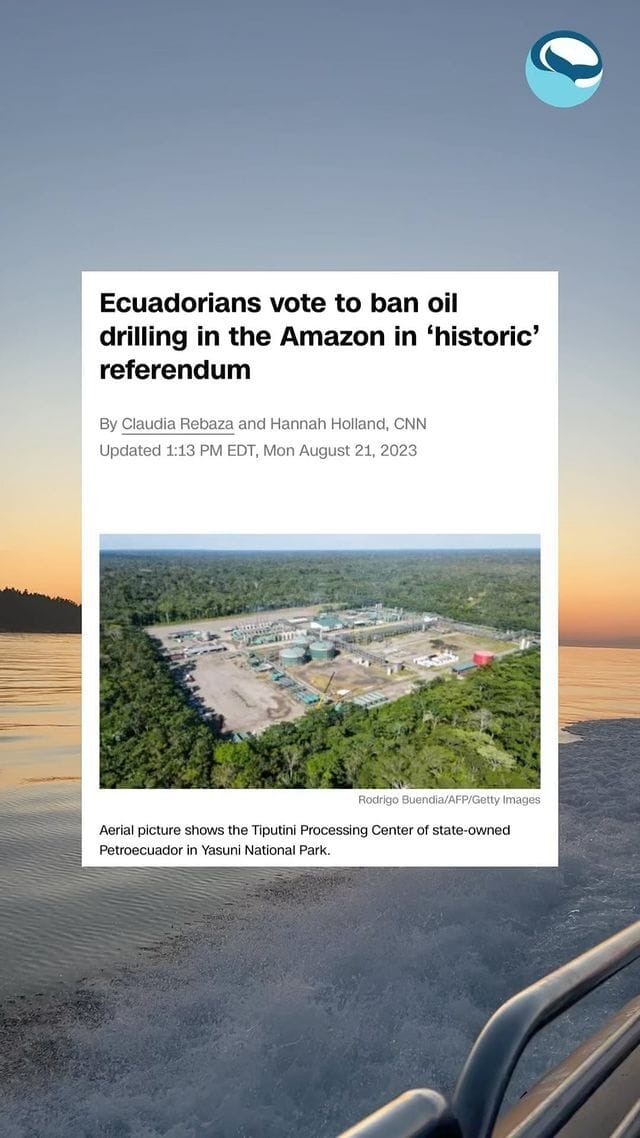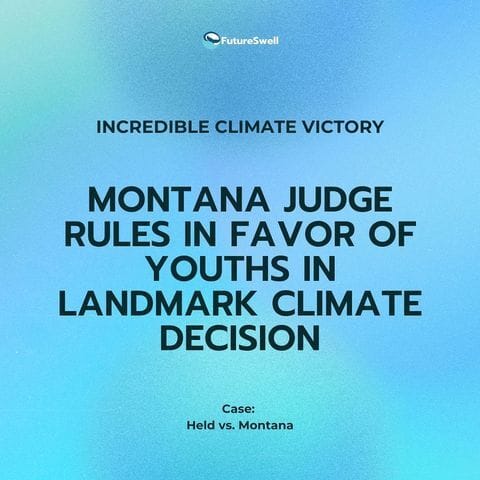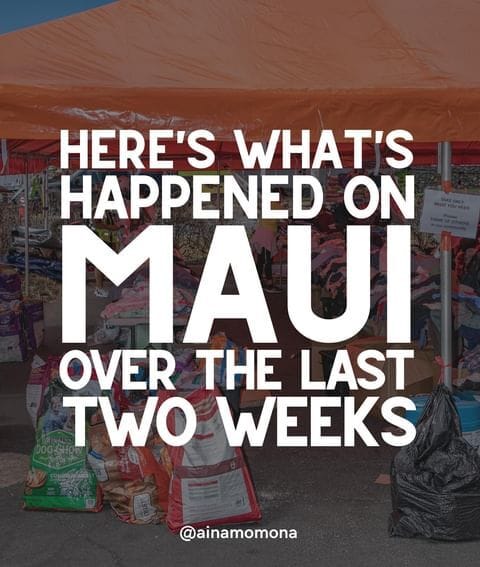- The Ripple
- Posts
- The Ripple - August 2023
The Ripple - August 2023
A Blue Newsletter By FutureSwell
Itʻs August, during the hottest summer on record. Chances are, you may be feeling the weight of the worldʻs recent events like we have. So we wanted to focus this monthʻs newsletter on hope, good blue news, and resources + opportunities for the path ahead. We are in it for the long haul, thanks for being here.
Maui fires reveal the importance of community-led relief efforts

The horrific and fires on Maui devastated the town of Lāhainā, and the cause was determined to be a mix of impacts from the climate crisis (40 mph+ winds from Hurricane Fernanda), colonization (invasive grass coverage from settlement), and capitalism (water diversion from residents to tourism). With hundreds of families displaced and the death toll rising, this awful event will take years of time and billions of dollars to recover from.
However, the fires have revealed something deeply beautiful about Hawaiʻi to the rest of the world: the incredible nature of communities and their unrelenting commitment to caring for each other. Across islands and neighborhoods, residents have organized tens of millions of dollars in donations and relief funds. Community leaders on Maui are taking the lead on what recovery and rebuilding must look like for their home, made their demands clear to government and President Biden, and are committed to building back with resilience, equity, environment, and people at the forefront.
While predatory investors and disaster capitalism threatens a community-based rebuild, direct relief efforts can empower and protect families. We can support through donations that go directly to families via ʻāina momona, a verified and indigenous-led nonprofit. Through a coordinated social media campaign in partnership with climate creators, over 5,600 people have already donated.
Please note that as an ocean conservation organization, we do not ask for donations, ever. But we are asking now. Whatever you have to give, please consider supporting the families of Maui.
Whatʻs new at Futureswell?
This month has truly been a rollercoaster of events for our team here at FutureSwell. Weʻve entered the full swing of El Niño, hurricane season, and coral bleaching. All the while, weʻve been working on sharing solutions through media and testing programs to increase restoration capacity here in Hawaiʻi.
Kuleana Coral Restorationʻs COAST program!
One of our clients, Kuleana Coral Restoration , received funding (unlocked from the IRA) to build ocean restoration capacity on Oʻahu for coral reefs. In May, we built a program for 8 local students to join a funded, accelerated summer course to learn scientific techniques, conservation solutions, and to increase restoration capacity here in Hawaiʻi through bringing more Native Hawaiians into ocean conservation.
Over the last 8 weeks, weʻve watched these students gain incredible skills to protect our ocean, and give their all to SCUBA certifications, community outreach, and restoration training. Each one brings something crucial to the table. We had cultural practitioners, researchers, photographers, and fishers, looking to find a way into this field that has had far too many barriers for them.
Yesterday, they graduated after 8 weeks. One of them reminded us that we canʻt control the length of a season, but we can control the depth. After this experience, we are deeply changed by the individuals who taught us as much as we taught them.

Sustainability & The Sea Roundup 🎙️
Stoked on Solutions: San Juan islands 🐳 - Alex & Carissa sit down to discuss all the incredible conservation solutions they experienced in the San Juan Islands, on their bucket list trip to see killer whales in their natural habitat of the Salish Sea. From ecotourism to whale watching communities, this one is our highest recommended pick to listen to!
Plastic Free July: hot takes + lessons ♻️ - A breakdown of the lessons from 7 years of plastic free Julyʻs, and what the sustainability movement fails to mention. We also posted this one on Youtube!
Futureswell on Youtube 🎥
Weʻve entered the Youtube chat! Subscribe for short films, fun ocean adventures, podcast videos, and sustainability in practice. We canʻt wait to share all the ocean conservation solutions with you - by bringing you with us.
Blue News: Progress is being made!
Ecuadorians vote NO on oil drilling in the Amazon!
GRASSROOTS CLIMATE WIN 👏🏾
As a grassroots climate win, Ecuador has democratically voted to stop oil drilling in #YasuníNationalPark within the Amazon rainforest. With the decision to protect irreplaceable biodiversity and indigenous people despite being a leading exporter in oil, this win speaks to the importance of youth organizing, grassroots activism, and how many wins we have ahead of us if we keep working towards them.
“Just one hectare of Yasuní land supposedly contains more animal species than the whole of Europe and more tree species than exist in all of North America.” - @cnnclimate
Montana Youth Win in Landmark Climate Case!
In Held vs. Montana, 16 youth sued the State for violating their constitutional rights to “a clean and healthy environment.” This ruling sets precedent for future youth climate cases to be heard by courts across the U.S., and shows that when we hold our States and leaders accountable - we can win.
Learn more by the organization who helped these young people win @youthvgov
Hawaiʻi Nonprofit Collects 86,100 pounds of ocean debris in only 30 days!
Conservation efforts from the Hawai’i nonprofit Papahānaumokuākea Marine Debris Project has removed over 86,000lbs of ocean debris from the Northwestern Hawaiian Islands on their first 30 day expedition of the year. Almost 80% of the debris the team removed consisted of ghost nets, which are discarded fishing nets that travel ocean currents trapping and killing many marine organisms. The other 20% of debris consisted of single use plastics discarded across the remote shorelines. PMDP member Lauren Chamberlain has appeared on the Sustainability & The Sea podcast to share her work, first hand experience, and best advice for young conservationists that want to do something similar.

Sailing Wings to Decarbonize Cargo Shipping
Wind propulsion by large ships is no novel technique in the realm of global maritime transportation, but engineers in the United Kingdom have begun a project to implement wind propulsion technology into modern cargo ships to reduce the global industry’s carbon footprint. The Pyxis Ocean cargo ship is currently on its maiden voyage traveling from China to Brazil over the next 6 weeks, testing out the new wind propulsion sail that is replacing its engine. The ship has two 123 ft. tall wings made out of the same material as wind turbine blades, allowing the ship to be propelled across the ocean.

The shipping industry is a major contributor of emissions, releasing more than 837 million tonnes of CO2 each year! With new pressures to decarbonize the massive global industry the UK firm pioneering the technology predicts half of new ships built by 2025 will incorporate some kind of wind propulsion. While the current project is estimated to take 6 weeks to reach its destination, the founders have many plans to improve the speed and efficiency of the ‘back to the future’ technology. Its creators also suggest that adding wings could potentially result in saving more than 20 tonnes of CO2, per vessel, every day. Read more
Ocean Careers
Blue Advice: Tips & Tricks to Build a Career in Marine Biology, Conservation, and Science
Do degrees matter? Depending on what you want to do in the field, yes. Gaining a Bachelor’s degree in a scientific discipline can make you more competitive for jobs and management. However….
Experience matters more. Whether it is lab work, diving, or community education - start gaining experience as early as you can. Check out our opportunity lists below, or university websites and nonprofit organizations around your area.
Hone your problem-solving and analytical skills. These are the two most important skills to have when conducting research - if that is the path that excites you the most!
Donʻt sleep on building excellent written and verbal communication skills by actively participating in conferences, sharing data, and project deliverables. These skills can carry you farther than degrees, connections, and good timing - which is saying a lot.
Share your experience level. Donʻt undersell yourself, all of your relevant experience is important to mention in interviews.
Be able to work independently AND as a part of a team. Modern science is built of collaborative efforts, and that takes people skills, empathy, and good communication.
Get employed to protect the ocean.
Our goal is to get as many people as possible involved in marine conservation.
JOBS
INTERNSHIPS
Community Feature: ʻĀina Momona
ʻĀina Momona is a Native Hawaiian community platform based on the island of Molokaʻi, and serves as an incredible educational resource on indigenous knowledge in Hawaiʻi, local issues, and how we can support initiatives for our people + planet. They are running a series of relief campaigns for Maui right now that you can support, and educating the masses through social media that we can all learn from.





